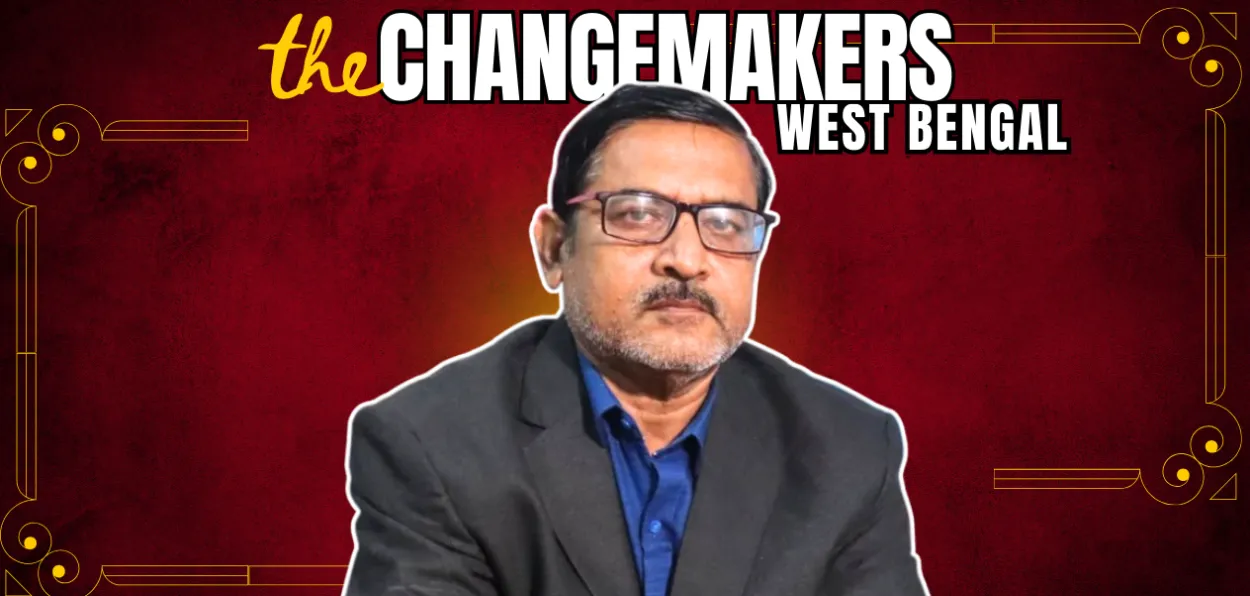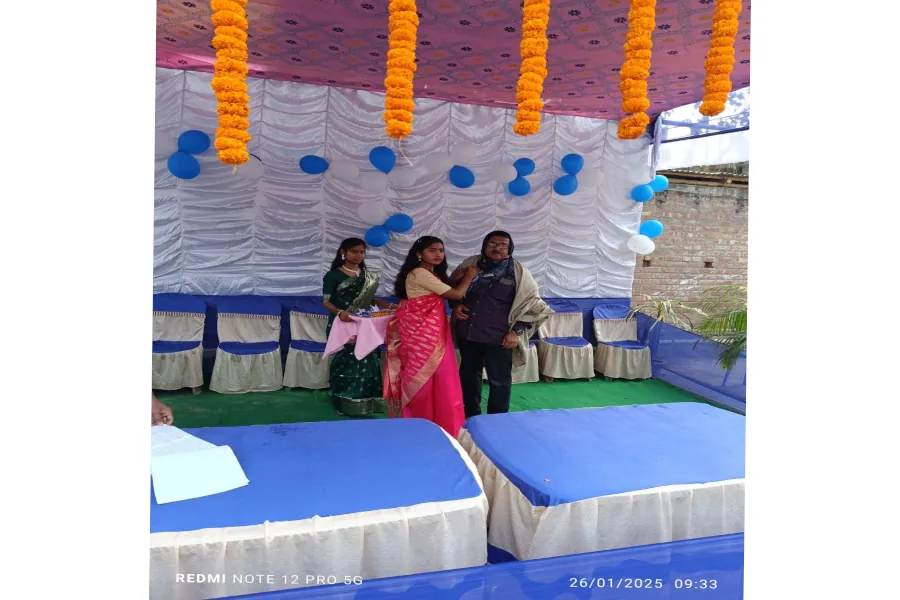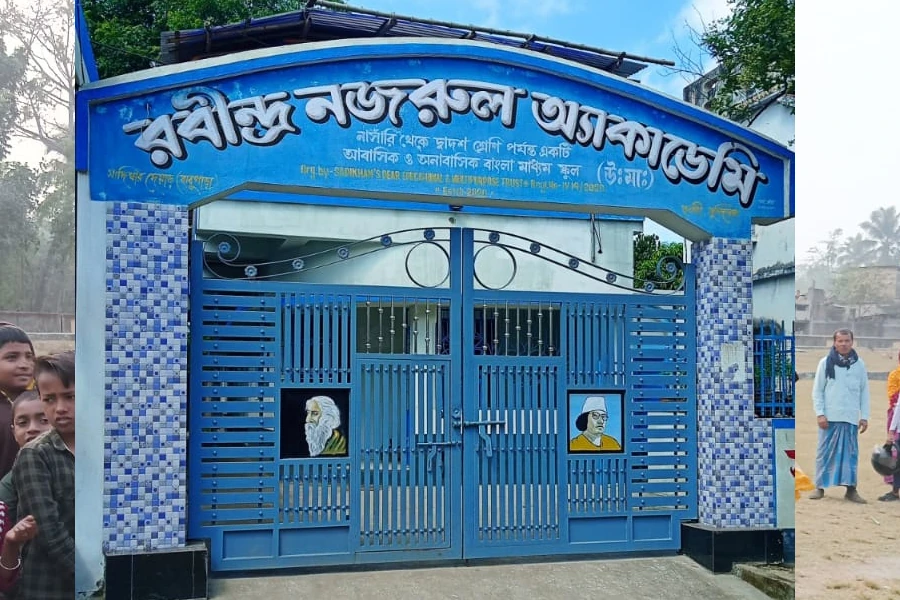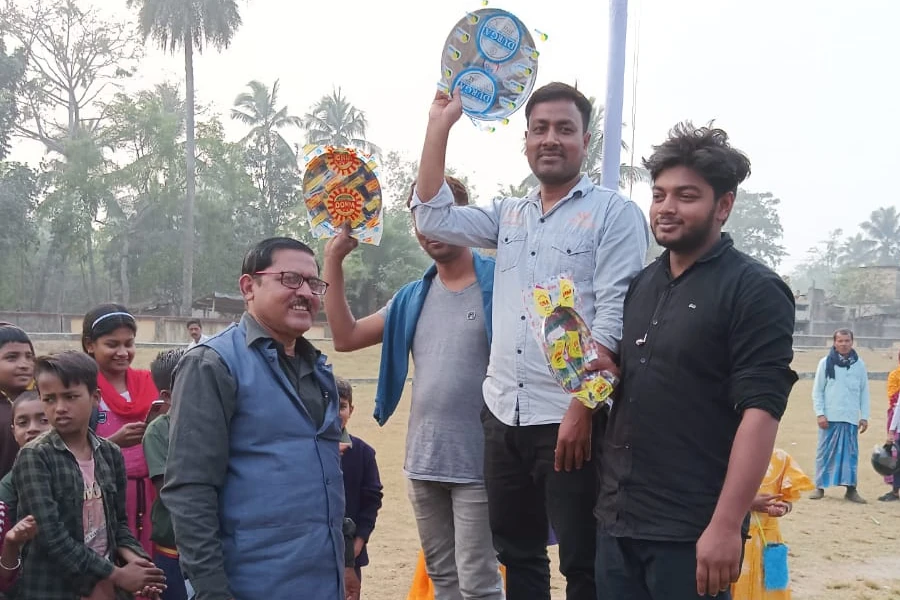
Kutub Ahmed/Murshidabad
Abdul Sattar, affectionately known as Sattar Master, has earned the deep respect of the people of Jalangi due to his noble qualities in promoting education. He is the driving force behind the Rabindra-Nazrul Academy, which teaches 700 students.
Just a few hundred meters off the Jalangi–Domkal state highway, the institution welcomes visitors with the cheerful voices of children,both residential and day scholars.
During our visit to the academy, the treasurer Lutfar Rahman received us warmly, soon joined by Abdul Sattar himself—a simple, bespectacled man, his eyes shining with hope.
Standing with him was education enthusiast Rashidul Islam, Secretary Imran Ali Sekh, Assistant Secretary Zahura Khatun, Gholam Mortuza, Hasina Khatun, and Rahman. Together, they form the backbone of this remarkable initiative.
The academy began in 2020 with a vision clearly stated to parents: “Education is the process of bringing out the inherent strengths in a child’s mind. Rabindra-Nazrul Academy aims to shape every child to become a good citizen,” Abdul Sattar explains.

Abdul Sattar being felicitated
What sets the school apart is its inclusive philosophy—no community receives special privilege, and every student is free to practice their faith.
“We believe in humanity. Through it, we build moral values so that children grow into citizens who can serve the nation. Our goal is not just to produce doctors and engineers, but also administrators, policymakers, and leaders in socio-political and economic spheres.”
The focus is on nurturing self-reliant individuals—socially conscious, emotionally sensitive, and patriotic. To this end, the academy combines modern, scientifically designed learning with strong moral foundations, preparing children to be both responsible citizens and capable leaders.
A defining strength of the institution is its spirit of harmony. Guided by Sattar Master’s unwavering commitment to communal unity, the school provides equal opportunities for Hindu and Muslim students alike.
His humane outlook endears him to people of all communities, making parents trust the academy with their children without hesitation.
 Rabindra-Nazrul Academy
Rabindra-Nazrul Academy
The school follows the West Bengal Board of Primary and Secondary Education syllabus and employs qualified, specially trained teachers. Audio-visual tools enrich classes, while remedial lessons support weaker students. Beyond academics, emphasis is placed on Hindi and computer literacy. Sports, music, dance, karate, and art ensure well-rounded development.
Separate hostels for boys and girls provide nutritious meals and clean drinking water, while day scholars enjoy additional facilities.
A large playground, part of the Sattar family’s land, enhances the campus, as does the main school building—also built on Abdul Sattar’s personal property. His devotion of family assets to education reflects true dedication: to give one’s wealth and energy for the nation’s future is no small feat.
Speaking of his dream, Abdul Sattar says, “It was my long-cherished wish to establish a school different from the rest.” After retiring in 2020, he laid its foundation, though the pandemic delayed classes for over a year.
The academy, run solely for social service, now has 700 students and 53 staff members—a feat made possible by his simplicity, love, and gentle leadership.
Once active in politics, Sattar Master stepped away to avoid compromising his ideals. In today’s times, such principled figures are rare. Yet it is because of them that enthusiasm for education thrives.
 Sattar Master with his students when they are on victory stand
Sattar Master with his students when they are on victory stand
With that support, he established the Rabindra-Nazrul Academy in Sadikhan’s Deyar (Babupara), Jalangi. This Bengali-medium school runs from nursery to class XII, serving both residential and non-residential students.
Guided by the ideal, “For all of us together, each of us for one another,” his work reflects immense moral courage. How many people would raise and educate other children as their own? For Sattar Master, it is second nature, born of a selfless life. Even in his mid-60s, he devotes himself tirelessly to education, treating his students as his true family.
ALSO READ: Why is Muhammad Nurul Islam known as Sir Syed of Bengal?
Though Muslim society has historically lagged in education, leaders like Abdul Sattar point the way forward. His message is clear: “We need Muslim representation not only as doctors and engineers, but in every government sector. Opportunities are many, and we must claim them with merit.”
